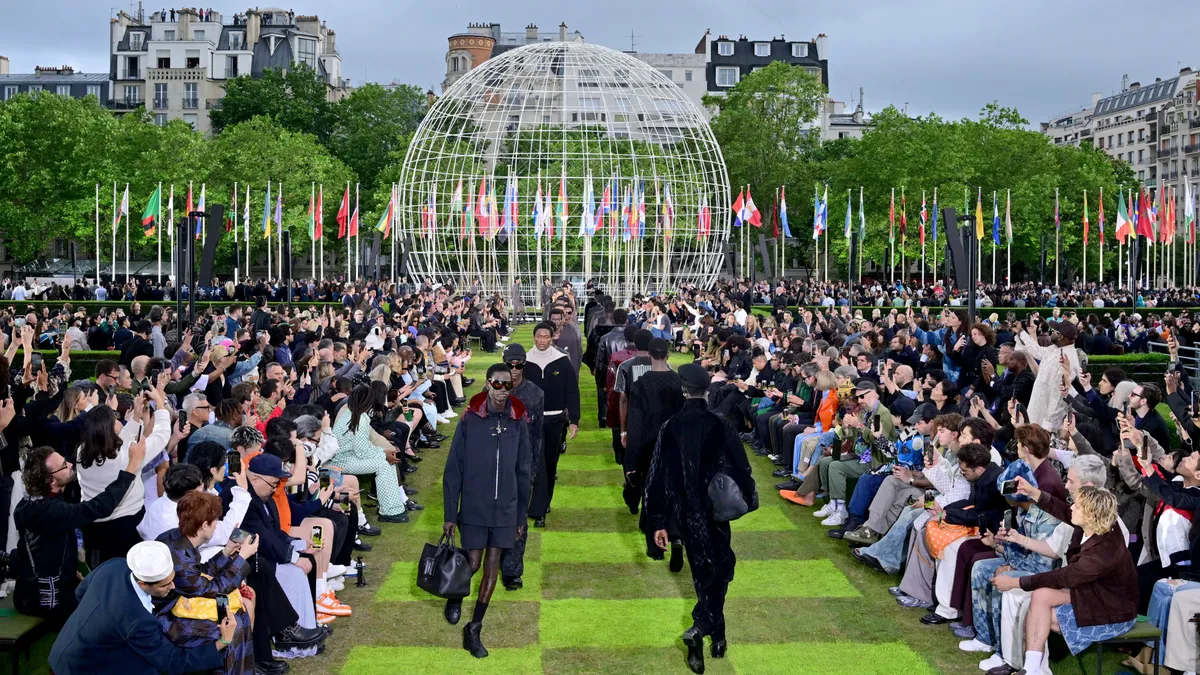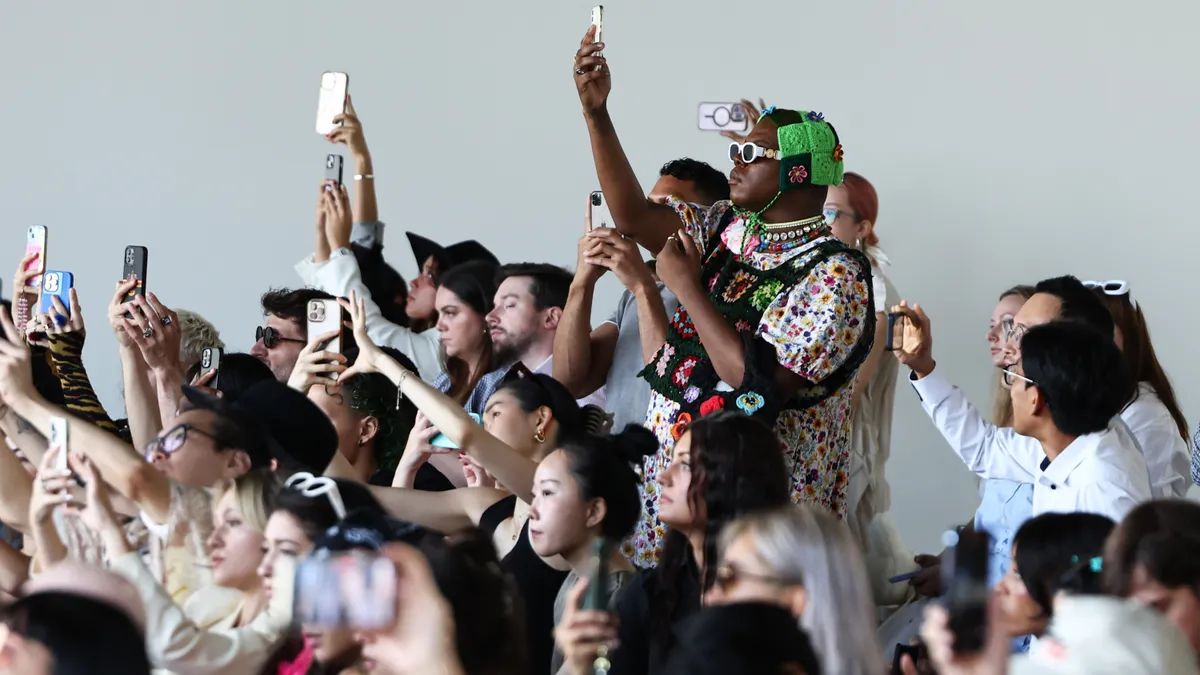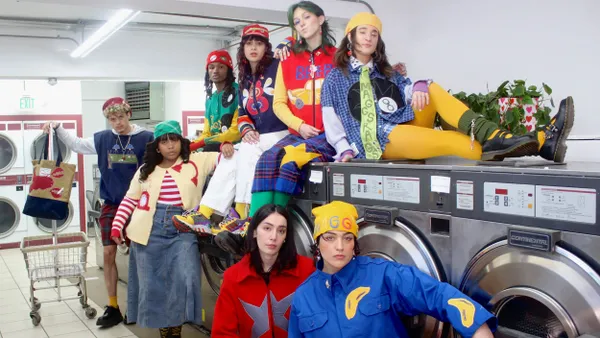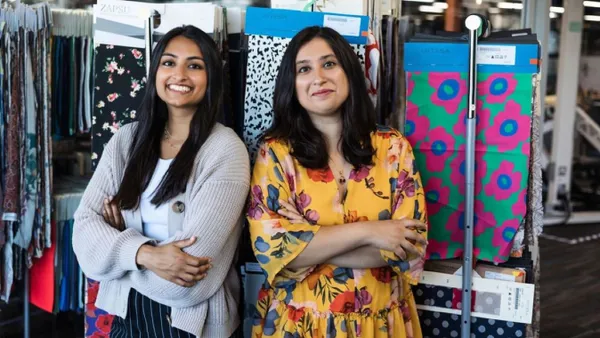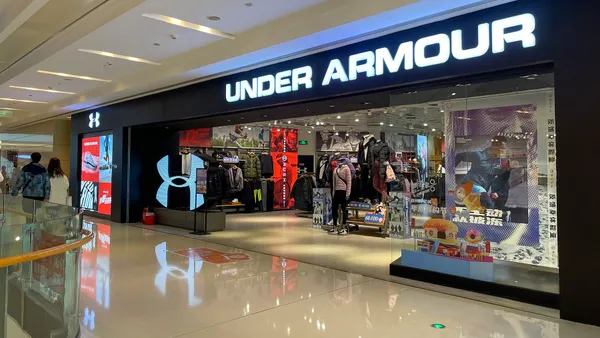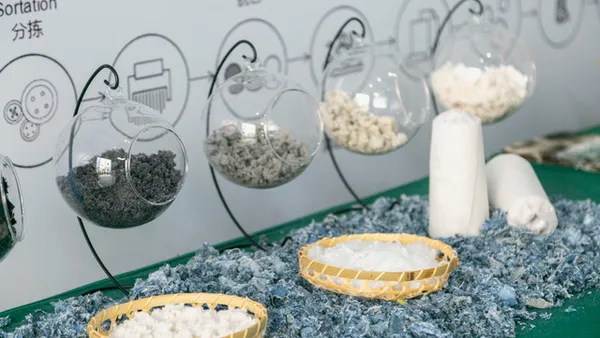Dive Brief:
- Gucci Preloved with Vestiaire Collective and Gucci Continuum, which features redesigned deadstock materials, both launched last week.
- The efforts are part of a larger strategy to embrace a more sustainable supply chain, which includes last Friday’s statement by parent company Kering that it plans to reduce absolute greenhouse gas emissions by 40% by 2035.
- Other designer brands are also tapping into their resale market, such as Oscar de la Renta, which launched Encore by Oscar de la Renta through resale platform Archive.
Dive Insight:
This isn’t Gucci’s first time around when it comes to targeted resale. In 2020, it partnered with The RealReal, and in 2021, the release of the House of Gucci film had InStyle magazine reporting that the movie was “making Gucci merchandise skyrocket on resale platforms.”
The new partnership builds on an established relationship between upscale resale platform Vestiaire Collective and Gucci parent company Kering. In 2021, Kering and Tiger Global Management invested $216 million into Vestiaire in a financing round that resulted in French luxury group Kering taking a 5% stake in Vestiaire. Another Kering brand, Alexander McQueen, also has a collaboration with Vestiaire, while Kering-owned Balenciaga has a partnership with resale platform Reflaunt.
As with the Alexander McQueen collaboration, which only takes items from select McQueen customers, the Gucci collaboration with Vestiaire will have a limited scope, and will only accept certain handbags in exchange for store credit. Still, the move signals a glowing endorsement of the earning potential for luxury resale. A recent report from Bain noted the secondhand luxury goods market rose to approximately $46 billion in 2022.
But resale is just one part of a larger strategy. Another is making use of Gucci deadstock materials through its Gucci Continuum platform, launched through Gucci Vault. The products available through this initiative will showcase creative collaborations, and the initial run features pieces from 10 partners, including Alpha Industries and Slam Jam, Collina Strada, Hodakova and Vans.
Later this week, when Kering releases its 2020-2023 Sustainability Progress Report on Wednesday, there will likely be more information on the company’s green playbook, but it already includes supply chain changes.
Last month, Gucci and Kering jointly launched an initiative in Tuscany, called the Circular Hub, which the company said would serve as an accelerator for “circular luxury in Italy,” per a statement posted on the company’s website.
Initially, the hub will work with Gucci production sites, as well as the brand’s Italian-based raw material suppliers and finished products manufacturers, which Kering’ website said make up more than 700 direct suppliers and 3,500 sub-suppliers. Eventually, Kering hopes to expand the hub’s circular innovation platform to all of its brands, and potentially even further, to the entire luxury sector.





